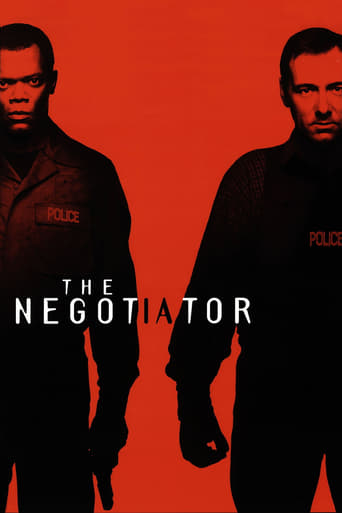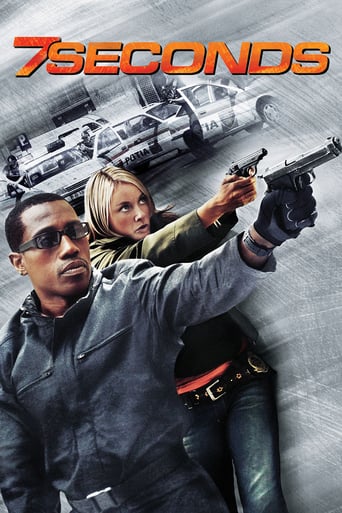
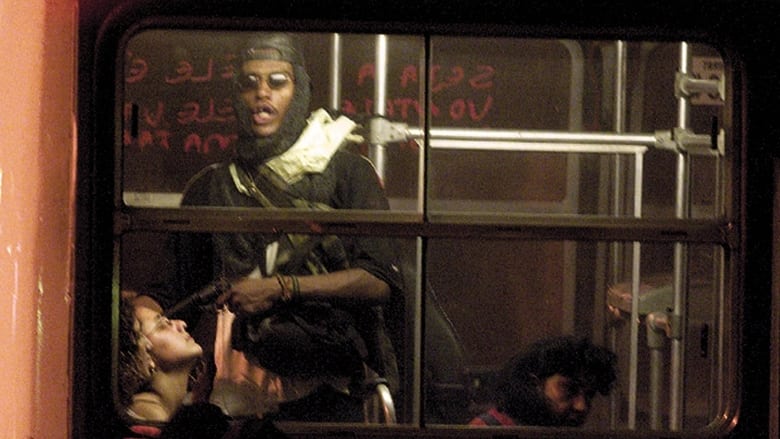
Bus 174 (2003)
Documentary depicts what happened in Rio de Janeiro on June 12th 2000, when bus 174 was taken by an armed young man, threatening to shoot all the passengers. Transmitted live on all Brazilian TV networks, this shocking and tragic-ending event became one of violence's most shocking portraits, and one of the scariest examples of police incompetence and abuse in recent years.
Watch Trailer
Cast
Similar titles
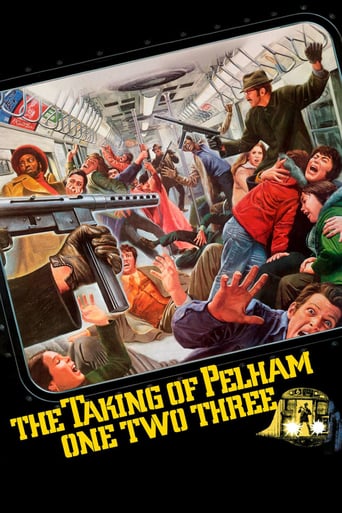
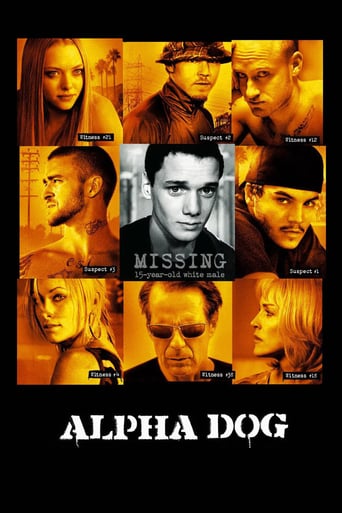
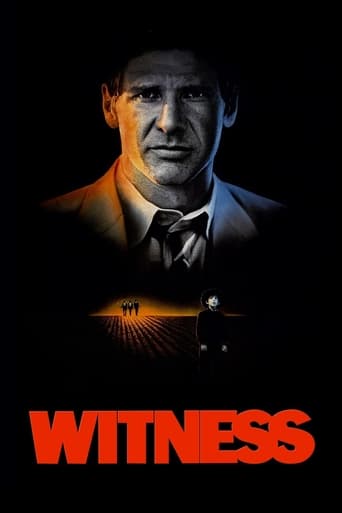
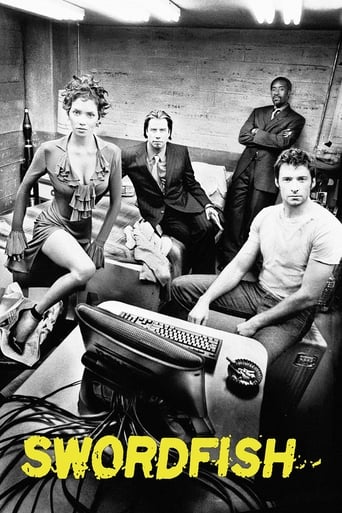
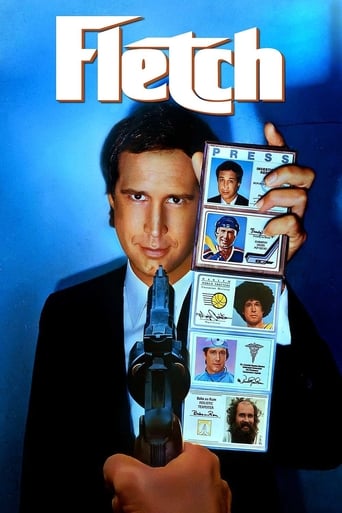
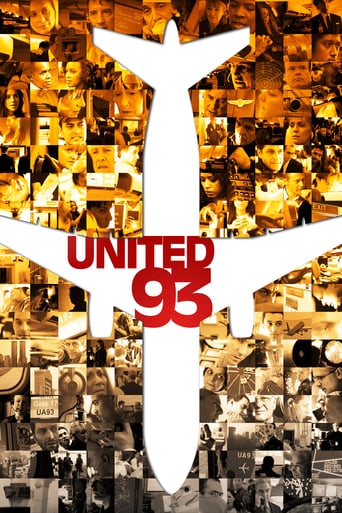
Reviews
Very very predictable, including the post credit scene !!!
Great Film overall
Fanciful, disturbing, and wildly original, it announces the arrival of a fresh, bold voice in American cinema.
The story, direction, characters, and writing/dialogue is akin to taking a tranquilizer shot to the neck, but everything else was so well done.
Bus 174 tells the true story of the day in 2000 that the attempted robbery of a bus in Rio led to a tragic hostage crisis. Drawing heavily on newsreel footage and interviews with those involved, this film gives a comprehensive, gripping view of a situation that is all too common in certain parts of the world.The film begins as negotiators arrive at the scene, and continues until the final, tragic conclusion. Interviews with police, hostages, and reporters fill in every detail of the affair. We share the fear of the hostages, trapped with an armed, desperate, and highly erratic suspect who feels he has nothing to lose. We feel their frustration as police miss opportunities to resolve the crisis. And we see the public spectacle the crisis becomes as the scene is surrounded by throngs of curious civilians and the airwaves of Brazil become host to the hijacker's tirades.Coverage of the hostage crisis is inter-cut with background information on the hostage taker, Sandro. We learn how witnessing the brutal murder of his mother as a child led to a life on the streets. He fell in with youth gangs, became addicted to cocaine and inhalants, and turned to violent crime to support his addiction. He served time in jails where inmates were routinely beaten. And while still a child, he survived the Candelaria massacre, in which seven children were gunned down- most likely by off duty cops. None of this excuses the actions he took that day, but it's too easy to understand how he ended up like he did.And even sadder is that there are thousands more like him in the cities of Brazil. I know that we haven't eliminated homelessness here in America, but gangs of vagrant children are not a common sight here. Is there no place for orphan and runaways to go in Brazil, no-one to take care of them? And in the prisons, why are there no classes to teach them how to read and write and to give them job skills? And then there are the beatings, overcrowding, and unsanitary conditions. Where I come from this would elicit outrage.And the police don't get a free pass here either. The members of the SWAT team showed courage in the face of an armed suspect, but none had the courage to countermand bad orders from distant civilian authorities. The crisis was prolonged, and a young woman died, largely because they had been ordered to take the suspect alive. And after they had him in custody, they suffocated him to death in the back of their van. Why? This story is heartbreaking, all the more so for being true. But it is an excellent film, keeping the viewers attention and careful to cover the story from all angles. It delves not only covers the crisis, but delves into the nature of crime, and major issues that face all societies to some degree. Highly recommended.
This documentary stood out for me from others of its ilk, because it focuses not just on what happened on a bus one summer day in Brazil, but also reaches into the socioeconomic situation at the time and gives us a real glimpse of why a young man would be driven to take people hostage, and how he felt he had no other options outside of a life of crime.Watching "Bus 174" is like observing a criminal event through a prism. There are countless sides to every element of it. The beauty of Rio de Janeiro is juxtaposed on screen with the horrors as we're taken through the escalation of a hostage situation, all graphically captured by Brazilian TV camera crews. We can see how wide the gulf is between the rich and the poor, even though the lives of each are lived only miles apart in the same city. We are told how inadequately the police force has been trained and equipped to deal with the crime in the city, let alone such a volatile situation. And we're shown how a single bus stopped on a busy thru-way brings an entire city to a screeching halt. With the rich context given to us by the filmmakers, we find ourselves sympathizing with the gunman (Sandro do Nascimento) *and* his hostages. And while we now know how badly it will end, we can't help but hope that somehow Sadro's surrender will be accepted, that he and all of the hostages will make it out unscathed, that history can be rewritten. Tragically, it cannot, and we are shown the moments when lives are lost. We're also left to contemplate how many ways this could have ended differently, and how little it may have taken to do so.Interviews with everyone, from survivors to police personnel to reporters on the scene, as well as people who knew Sandro during his horrific childhood, are very effective in making us feel as though we too were there during that harrowing 4-hour long encounter. Learning about the gunman's tragic history - what he had to survive to reach even the young age he had when this incident ended his life - and how, in the aftermath, police scrambled to re-frame the incident in their favour, add to the viewer's internal conflict. We're not accustomed to experiencing such empathy for both hostage-taker and victim. That is a major strength of this film: we're allowed to see it from all sides, which makes it that much more heartbreaking in the end.This is not for the faint of heart. We're not spared much. But "Bus 174" is a documentary after which others should strive to model themselves. It is truly a must-see, as it comes as close as anything possibly can to answering what we always ask after a tragedy: "Why?"
I've seen excellent documentaries about hostage situations before (e.g., One Day in September). While the storytelling, per se, was very good, it wasn't top notch. And sure, there are some heavy-handed messages and biases in the documentary. But on the whole, I thought the director inter-weaved different viewpoints on the events -- from middle class citizens to SWAT team members to prisoners who grew up in the favelas. But a few things about this film made it more memorable than many of the others.For one, the access to video coverage is astounding. The multiple angles, the slow-motion footage... combined with how this event played out provided the sort of visibility that many people wish we had for JFK's assassination.Another was the cultural context. There's quite a lot about the organization of the police force, the crowd reaction to the situation, the Brazilian conditions of poverty and homelessness, etc., that are very foreign to many Western ways of thinking.And oddly, some of the contributed footage of this film is stunningly beautiful. Using sweeping helicopter vistas of Rio, it's good and bad neighborhoods, it's churches and official palaces -- it all provided a vibrant and even loving context to the troubled city in which these events take place on a much smaller scale.
Bus 174 is a documentary based on the hold up of a bus by a young man named Yvonne Bezerra De Mello in Rio De Janeiro in the year 2000.This is a shocking but truthful story of a young man with a troubled life. Bus 174 was a very well shot and organised documentary, although violent and crude, very well done. It was a very real feeling while watching it.Real footage was used for the majority of the documentary other parts are fictionalPros Realistic, Well filmed.Cons none


